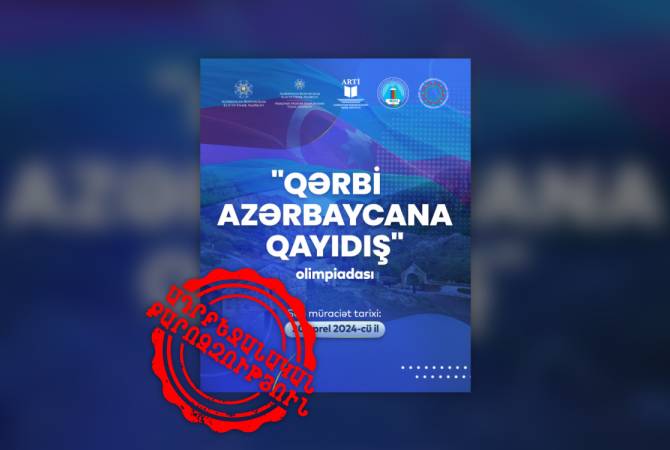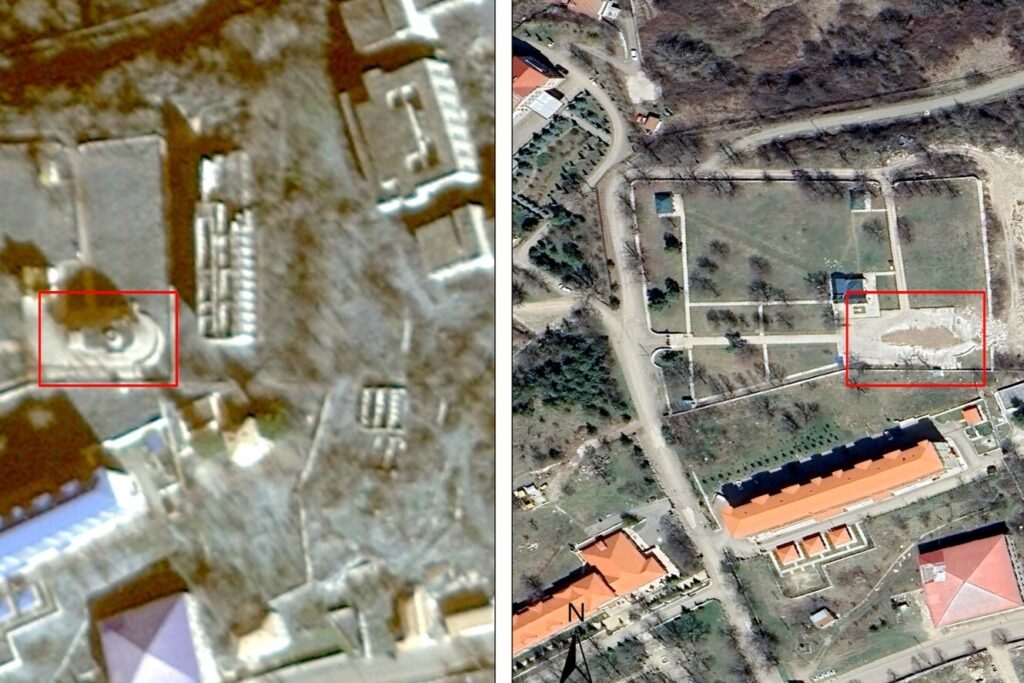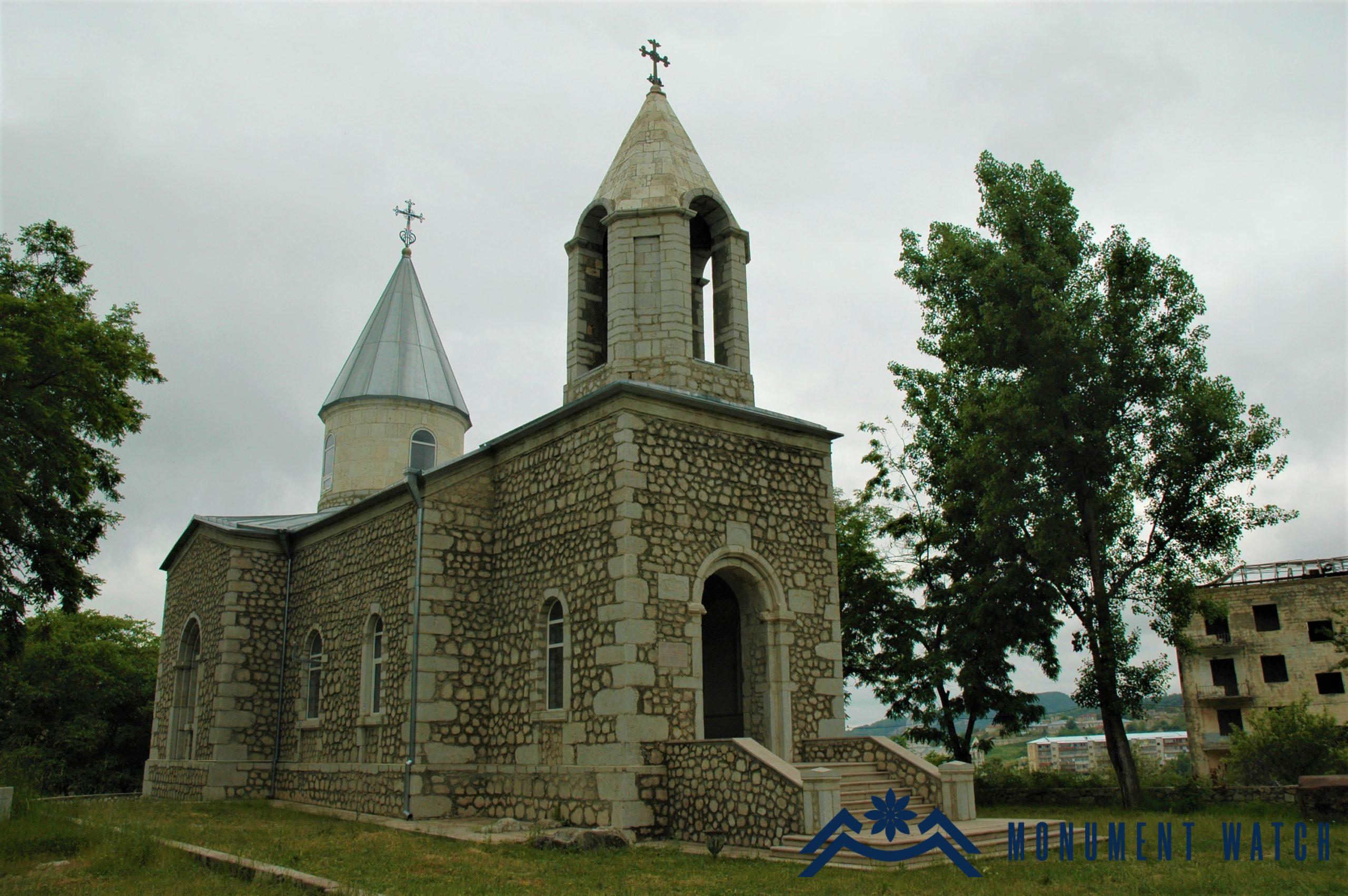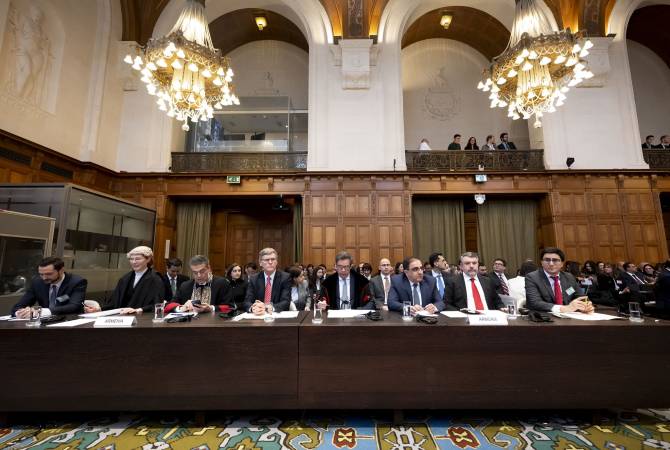Will Armenia and Azerbaijan sign a peace treaty, finally agreeing on the difficult issue of border demarcation?
Yerevan and Baku have taken a first step by accepting the Alma-Ata Declaration as a guiding document in the process of border demarcation, fixing the borders at the time of the collapse of the USSR and affirming the independence of the two states. The former administrative borders of the USSR are recognised as state borders. The administrative borders of the Armenian and Azerbaijani Soviet Republics should be restored through demarcation. Maps from 1969, 1974, and 1975 will be used, which have a legal basis as they were approved and signed by the Armenian and Azerbaijani Supreme Councils.
In line with this declaration, Armenian Prime Minister Nikol Pashinyan agreed to return to Azerbaijan the ruins of four villages, which came under the control of the Armenian armed forces in the fighting in the 1990s.
However, Armenia won't get a single centimetre from the 200 to 300 sq km of territory that Azerbaijan has occupied in recent years. This fact has caused discontent in the villages bordering Azerbaijan, where anti-government protests are currently being held.
This unpopular decision of Pashinyan exposes his government to serious risk, but it gives observers reason to believe that Armenia and Azerbaijan will finally sign a peace treaty. How realistic are these hopes?
"Resolution" of the Nagorno-Karabakh conflict
The central issue in Armenian-Azerbaijani relations had long been the fate of Nagorno-Karabakh. The 30-year-long peace talks between Azerbaijan and Armenia eventually failed because of Azerbaijan's aggressive wars in 2020 and 2023 to recover the territory, which has for centuries been occupied by ethnic Armenians.
In December, 120,000 ethnic Armenians, who had relied on the "security guarantees" of Russian "peacekeepers", were forcibly displaced from Nagorno-Karabakh and sought refuge in Armenia. Today, Azerbaijan considers the conflict resolved, as Karabakh is completely under its control. Armenians have not returned to Nagorno-Karabakh because of a lack of trust in the Russian guarantees. Recently, the Russian troops agreed to leave Karabakh, concluding one of the most disgraced peacekeeping missions in the world.
However, the G7 countries do not regard the Karabakh issue as closed, as they recently called on the Azerbaijani authorities to "take appropriate steps to ensure the safe, dignified, and stable return of refugees to Nagorno-Karabakh". However, there is no visible action by the G7 countries to deploy international peacekeeping forces to Nagorno-Karabakh. Until this occurs, the return of Armenians to Karabakh is improbable.
If Armenia insists on the return of the Karabakh Armenians in the current negotiations, Azerbaijan would demand the return of Azerbaijanis to Armenian-occupied territory based on the principle of reciprocity. These factors currently preclude the return of Armenians to Karabakh.
Yerevan is disinclined to make the Karabakh Armenians’ fate a subject of discussions with Azerbaijan, understanding that it would hinder reaching an overall agreement. Armenia is prepared to remain silent on the issue of Karabakh and forgo lawsuits against Azerbaijan in international courts in order to facilitate the signing of the treaty.
Pashinyan’s changed stance
With the difficult decision to cede four villages to Azerbaijan, Pashinyan's government has demonstrated its genuine intention to sign a peace treaty.
After the 44-day war in 2020, Pashinyan reconsidered his ideas about relations with Azerbaijan and Turkey. Until September 27, 2020, he was no different from today's nationalist figures in Armenia, holding radical positions on relations with Turkey and Azerbaijan.
However, the situation has now changed 180 degrees. In recent months, Pashinyan has been trying to convince Armenian society that it is necessary to abandon the dream of restoring "historical Armenia" and instead deal with the realities of "real Armenia." The survival of "real Armenia" implies the need to rebuild relations with Turkey and Azerbaijan.
Even with its Western allies, Armenia has no chance of pursuing a confrontational policy with Azerbaijan and Turkey. Armenia is inferior to Turkey and Azerbaijan in terms of economic, military, and demographic potential.
Among Pashinyan and his team, the idea has also taken root that Russia, rather than Armenia, benefits from Armenian’s long-term conflicts with Turkey and Azerbaijan. The existence of military conflicts in the South Caucasus and Armenia’s tensions with Turkey strengthened Russia's position. Armenia is directly dependent on Russia, and if this dependence is not addressed, Armenian statehood may cease to exist. This is why Pashinyan approaches relations with Armenia and its neighbours realistically. He genuinely wants to solve problems.
Armenia's strategic perspective is to join the European Union and establish strong military-political relations with the US. Resolving problems with Azerbaijan and Turkey will make Armenia's strategic turn towards the West more feasible.
The West is ready to embrace Armenia as part of its family if it does not have hot conflicts with its neighbours. I think Washington and Brussels have conveyed this message to Yerevan.
Pashinyan's government has calculated that after signing a peace treaty with Azerbaijan, Turkey will open the Armenian-Turkish border, diplomatic relations will be established, and significant economic interactions will begin.
The signing of a peace treaty with Azerbaijan would be a major achievement for Pashinyan's government. It would allow him to prove to the citizens of Armenia that the "era of peace" is truly beginning after decades of war (which was Pashinyan's pre-election promise).
Unpopular concessions
At this stage, Azerbaijan will not return the 200 to 300 sq km of Armenian territory it has occupied. Despite the one-sided logic of the process, Pashinyan has nevertheless agreed to withdraw Armenian troops from the four villages on the border of Armenia’s Tavush and Azerbaijani Kazakh regions.
The inhabitants of Kirants, Voskepar, and Baghanis villages are particularly nervous about this fact, as they will have to communicate with the Azerbaijani armed forces from a closer distance. Villagers currently regularly block interstate and community roads, complaining about the Pashinyan government's decision.
Pashinyan has calculated that by starting the border demarcation process with Azerbaijan based on the Alma-Ata declaration the situation on the Armenian-Azerbaijani border would become stable. According to him, Azerbaijan will be deprived of the opportunity to create false grounds for military attacks against Armenia. Additionally, one of the most difficult problems preventing the conclusion of the Armenian-Azerbaijani contract will be solved with the start of the demarcation process.
Pashinyan is trying to prove that he is ready to take painful and risky steps for the sake of signing a peace agreement. He also hopes to receive the support of the USA and the EU, thus gaining partners in deterring Azerbaijan's military attacks.
However, Pashinyan's romantic aspirations to make the peace treaty a reality collide with the regional plans of Ilham Aliyev and Vladimir Putin.
Azerbaijan’s reasons to avoid peace
In the last four years, Azerbaijan has occupied 200 to 300 sq km of territory of Armenia by military attacks. In January 2024, Aliyev admitted to the Azerbaijani media that he had occupied heights bordering Armenia. According to him, positioning troops at the heights gives him a chance to control the movement of the Armenian armed forces.
If Azerbaijan, after receiving the four villages, continues to use the Alma-Ata declaration as a basis for border demarcation, Baku would logically be forced to withdraw these troops from Armenia. By retreating from the territory of Armenia, Azerbaijan would lose its superior position over the Armenian armed forces.
To avoid this scenario, Azerbaijan may abandon the Alma Ata declaration after receiving the four villages. Azerbaijan will likely introduce new principles, try to invoke fake maps in the process of border demarcation and demand the recognition of Azerbaijani sovereignty over the Armenian heights.
Since international specialists do not participate in the border demarcation process, there is a big risk that Azerbaijan will threaten war and again force Armenia to accept the rules of its game.
It seems unlikely that Aliyev, who preaches "Armenian hatred" to Azerbaijan society, will return the occupied territories to Armenia. This could block the signing of a peace treaty.
Prolonging Aliyev's regime
Secondly, the internal political realities of Azerbaijan also support not signing a peace agreement. For almost 20 years, Aliyev has built his power around the goal of defeating the external enemy, Armenia. Armenia has been portrayed as an occupier, and defeating it has become the national ideology of Azerbaijan. Propaganda of hatred towards Armenians is state policy in Azerbaijan. A leader "sitting on a victorious horse" cannot yield to a "defeated enemy". Unfortunately, this idea prevails among the political elite and society of Azerbaijan.
The motivation to protect Azerbaijan's citizens from the military aggression of "enemy Armenians" ensures the consolidation of Azerbaijani society around the Aliyev regime.
Having hostile relations with Armenia is necessary for the president of Azerbaijan to protect and extend his regime. Aliyev reportedly won more than 90% of the votes in the last presidential pseudo elections thanks to the victory against the Karabakh Armenians and the realisation of his dream of revenge.
By signing a peace treaty with Armenia and building real peace, Aliyev would lose the tool to consolidate his regime. Why should Aliyev risk the future management of his dynasty in Azerbaijan?
The Russian spoiler
The conclusion of the Armenian-Azerbaijani peace treaty has a stronger opponent than Aliyev. The main state opposing the peace treaty between Armenia and Azerbaijan is Russia.
Russia has maintained its military and political presence in the South Caucasus for 200 to 300 years by provoking conflicts between local peoples. Russia has troops in all countries of the South Caucasus: Armenia, Georgia, and Azerbaijan, giving it dominant control.
The Russians have used the same method in Georgia, Moldova, and Ukraine. The Armenian-Azerbaijani conflict has not been resolved for decades because Russia did not want it to be.
The conclusion of the peace treaty implies that Armenians and Azerbaijanis should stop killing each other, and problematic issues should be resolved through negotiations. It is not a favourable scenario for Moscow. If Armenians and Azerbaijanis stop killing each other, Russia's presence in the South Caucasus would become meaningless.
Two years before its attack on Ukraine, Russia, in a deal with Turkey, agreed that Azerbaijan could start a war against Nagorno-Karabakh. That war also gave the Kremlin a chance to send troops into Karabakh. In addition, Putin got the loyalty of Aliyev and Erdogan in his war against Ukraine.
But this policy has been a complete failure. Today, Russian peacekeepers are leaving Karabakh following the Azerbaijan reconquest. Even the Russian military presence in Armenia is now at risk. Pashinyan recently said that Russian military positions should be removed from the demarcated border of the Tavush region. The Kremlin has repeatedly tried to deploy CSTO or Russian troops on the Armenian-Azerbaijani border throughout the demarcation period. But Russia was excluded from the demarcation process, even though a Russian commission was created. If border demarcation is carried out in the Gegharkunik and Syunik regions, Russian military positions will also be removed from those regions.
The reduction of Russian military-political influence in the South Caucasus is a crushing defeat for Putin's policy. Moscow will try to prevent the signing of an Armenian-Azerbaijani peace treaty to prevent the scenario of the removal of Russian military units. The settlement of relations between Armenia and Turkey would also make the existence of Russian border guards on the Armenian-Turkish and Armenian-Iranian borders pointless.
It can also be expected that Armenia will demand the withdrawal of Russian troops from its territory, including the withdrawal of the 102nd military base in Gyumri. This will be the final expulsion of Russia from the South Caucasus. In other words, Putin was not only unable to win the war against Ukraine but may also lose his influence in the South Caucasus.
Russia will try to disrupt the signing of a peace treaty, using both its influence on Azerbaijan and the political forces loyal to it in Armenia. While the West welcomed the latest Armenian-Azerbaijani agreement on the Alma-Ata declaration, Russia remained silent. Rather, Russia is trying to find ways to punish Pashinyan.
The pro-Russian opposition, taking advantage of Pashinyan's unpopular decision, is trying to take advantage of public dissatisfaction and generate anti-government movements. However, at the moment, there are no grounds to claim that the protests against the border demarcation process will have a potential nationwide scope and nature. It is more likely that they will disappear after the completion of the demarcation process around the four villages.
Aliyev plays Putin’s game
But Russia also still has great influence over Azerbaijan. Aliyev arrived in Moscow on February 22, the second anniversary of the signing of the Russia-Azerbaijan strategic alliance declaration. Afterwards Aliyev presented Armenia with artificial preconditions to make reaching a final peace agreement nearly impossible.
Praising Russia's "fundamental" role in the South Caucasus, Aliyev insisted that Armenia is obliged to provide what it calls the "Zangezur Corridor" under Russian control, a strip of territory linking Azerbaijan to its exclave Nakhichevan.
In the last four years, Armenia lost hundreds of servicemen and lost territories, but Armenia did not yield to Azerbaijan and Russia the "Zangezur Corridor". There is almost zero probability that Pashinyan will agree to provide Russia and Azerbaijan with this, which would violate Armenia's sovereignty and territorial integrity.
According to our information, Yerevan now will propose new regulations to Baku that will make transportation to Nakhichevan more comfortable, but Armenia's sovereignty will be preserved. In other words, soon, Baku will have a chance to prove that it does not serve Russia's plan. But I'm a sceptic on this question.
Aliyev demands Armenia change its constitution
After the meeting with Putin, Aliyev also demanded that Armenia change its constitution.
The Declaration of Independence is mentioned in the constitution, the text of which also refers to the "Armenia - Nagorno-Karabakh reunification decision" of the Supreme Councils of Karabakh and Armenia. However, in the peace treaty negotiations, Armenia and Azerbaijan agreed on a principle according to which the parties cannot refer to domestic legislation to not fulfill the provisions of the peace treaty.
In other words, by recognising the territorial integrity of Azerbaijan with the Alma Ata declaration, Armenia includes Nagorno-Karabakh in the composition of Azerbaijan. And since Armenia undertakes not to refer to its domestic legislation, this problem has been overcome. After the signing of the agreement, Armenia cannot consider Nagorno-Karabakh as separate from Azerbaijan, referring to its constitution.
However, since Azerbaijan appears to be under Russian orders to block the conclusion of the agreement, Aliyev put forward the demand to change the constitution. I think Pashinyan's government has no chance of holding a referendum to adopt a new constitution, considering that it is Azerbaijan's demand. Armenian society will oppose it. Azerbaijan is deliberately presenting an unrealistic demand.
Azerbaijan itself has some problems with its constitution. Azerbaijan declares itself the successor of the First Republic, by which it expresses ambitions for the eastern territories of present-day Armenia. Aliyev is not going to change his constitution, but he makes such demands on Armenia.
Aliyev also demands that Yerevan give up using Mount Ararat as a symbol. Ararat is a biblical mountain, and Armenia, which was the first in the world to adopt Christianity, cannot but consider that mountain as one of its symbols, even if it is located in the territory of Turkey. This is also an artificial obstacle that Aliyev deliberately puts forward.
It is also not excluded that the issue of dropping the Azerbaijan blockade will be left out of the draft peace treaty, and after the signing of the treaty, Armenia will continue to be under a blockade.
Will the historic chance fail?
Therefore, although Armenia and Azerbaijan are now the closest they have been to signing a peace treaty in the last 30 years, there is a high probability that it will not be signed.
Armenia's efforts and constructive stance alone are not enough to conclude an Armenian-Azerbaijani peace treaty, because Aliyev continues to serve Putin's interests. The Armenian and Azerbaijani peoples will probably not realise the historical chance to sign a peace treaty. And even Pashinyan's realism may become meaningless.
For the wars in the South Caucasus to end and a peace treaty to be signed, the US and the EU must exert strong pressure on Azerbaijan. If they don’t, Azerbaijan will become the main base for the spread of Russia's military and political influence in the South Caucasus, whose function will be the fight against the influence of the West.
Aliyev now positions himself as a figure fighting against extra-regional forces. He repeats the mantra of Putin and Erdogan that the problems of the South Caucasus should be solved by the forces of the region, and not by the countries across the ocean, referring to the US.
The president of Azerbaijan is playing on the Russian field. The signing of the agreement between Armenia and Azerbaijan will reduce the Russian factor in the region, and the role of the US and the EU will increase. By presenting these demands, Aliyev is trying to weaken and neutralise Western pressures. Aliyev's activity in the Russian direction is a message to the US and the EU that they could finally lose Baku if they try to impose sanctions.
Yet the West has decided to increase the level of resilience of Armenia, giving the Armenian side a chance to defend itself against the illegal demands of Azerbaijan and Russia.
On Sunday, US Secretary of State Antony Blinken had a telephone conversation with the leaders of Armenia and Azerbaijan. He called on Aliyev to maintain dialogue with his Armenian counterpart, and expressed gratitude to Aliyev for the declaration of demarcation between the parties. He emphasised its importance for both Yerevan and Baku in achieving stable and dignified peace. While talking to Pashinyan, Blinken also emphasised the ongoing efforts of the United States to support Armenia's sovereignty and territorial integrity, as well as Pashinyan's vision of a prosperous, democratic, and independent future for Armenia.
Although Baku refuses to sign a peace treaty in Washington, the US has taken a positive role in these processes. Whether or not Azerbaijan president will drop those obstacles preventing the conclusion of the agreement will depend especially on the involvement of the USA – both its determination and its demonstration of positive power.
https://www.intellin...?source=armenia





















